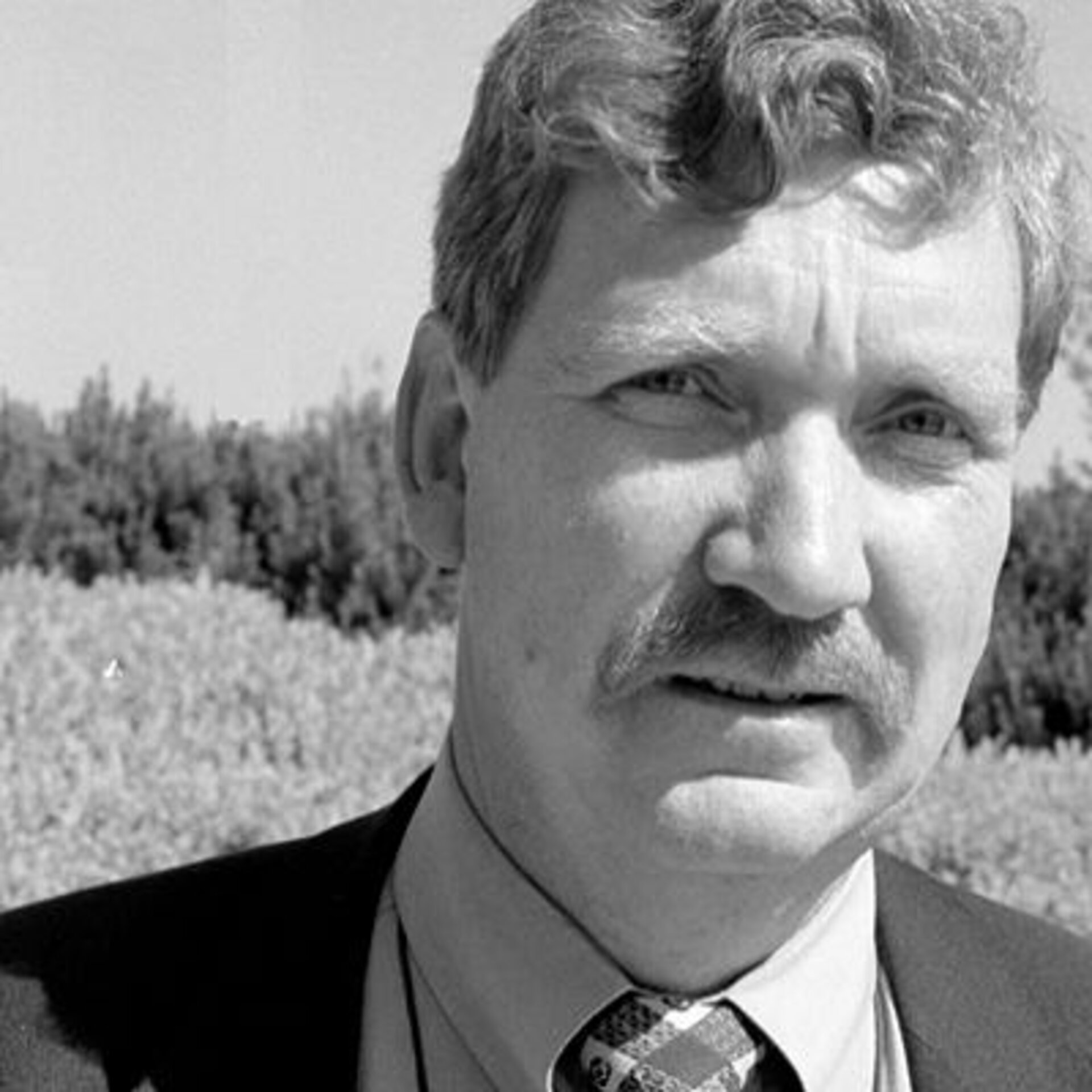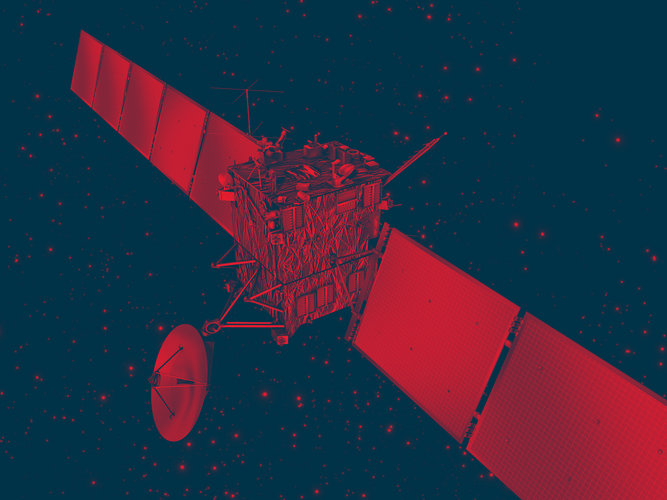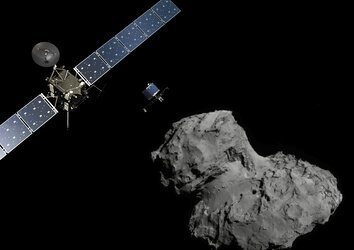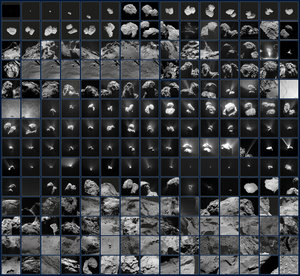“I get a kick out of you…”: An interview with John Ellwood
Managing the Rosetta project is the ideal job for John Ellwood, who derives much satisfaction from getting a craft into space that is as good as it possibly can be.
|
John Ellwood Born: 17 March 1948, in Dartmouth, England. John studied Mechanical Engineering at University of Cambridge, then spent five years working on military space systems, while obtaining a PhD at the University of London in the structural dynamics of spacecraft. He moved to ESA’s European Space Research and Technology Centre (ESTEC) in The Netherlands in 1974, and has worked on the NASA-ESA Hubble Space Telescope, the SOHO solar observatory and the XMM-Newton X-ray satellite, before becoming the Cluster Project Manager in 1997. Once Cluster was launched in 2000, John moved to the Rosetta team. John is married with two grown-up children, and lives in The Netherlands. Having learned to sail as a boy, John enjoys racing yachts in his spare time, and also jogging at weekends. |
ESA: How are you feeling now that the launch of Rosetta is finally approaching?
There is quite a bit of excitement around the team, and this builds as the launch gets closer.
John Ellwood: Obviously, I am a bit nervous, but at the same time relieved to be getting close to launch after the postponement last year. There is quite a bit of excitement around the team, and this builds as the launch gets closer. The launch itself is a fairly nerve-wracking affair, as there is always a small risk that things can go wrong. We will all be relieved once Rosetta is up there!
ESA: The journey to the comet will take over 10 years, what is it like to be involved in such a long mission?
John Ellwood: Making sure that everything is ready for the long trip is a challenge on the technology side, as is trying to make sure that we can conserve our knowledge for 10 years. This seems like a very long time for nothing to happen, but, in fact, there are lots of events going on during the journey that will keep us occupied. Firstly, we will be checking that every experiment is working over the first six months of the journey. Then, within a year, we will have the first fly-by of Earth. However, as project manager, my role is to get Rosetta into space, on time and working smoothly.
ESA: What are your hopes for the Rosetta mission, and why is it important?
The Rosetta mission, as well as using amazing technology, will be delivering some fascinating science...
John Ellwood: Everyone has heard of Comet Halley and, I think, of all the objects in space, comets are the most fascinating to people. The Rosetta mission, as well as using amazing technology, will be delivering some fascinating science, as it will hopefully give us new insight into the origins of our Solar System.
ESA: What drives you in your job?
I get a kick out of getting a spacecraft into space that is as good as it can be technologically.
John Ellwood: I think that all people who have trained as an engineer or a scientist are motivated by doing something that makes a difference. Personally, I get a kick out of getting a spacecraft into space that is as good as it can be technologically. Everyone involved on the Rosetta project is very dedicated, and I think we are driven by the thought of the end goal – a new understanding of the origin of our Solar System.
ESA: When did you first become interested in space, and how did you follow up that interest in your career?
John Ellwood: I had always been interested in technology, but I didn’t really become fascinated by space until I started my PhD in 1969. Since that was when the first humans set foot on the Moon, it was a very good year to become interested in space! I combined the two interests by working on space systems, which is a great role because you have all the management tasks to attend to, but you have to have an understanding of the technology, and what it has to achieve, as well.
ESA: What advice would you give to someone wanting to enter the space field?
We are always looking for new ideas and for young people to work on our projects, so just get involved!
John Ellwood: Obviously, it is very important to get the right technical or scientific qualification to be able to enter the field that interests you. But, even before that, there are all sorts of ways you can get involved in space, from school age onwards, so don’t just sit back and wait. We are always looking for new ideas and for young people to work on our projects, so just get involved!







